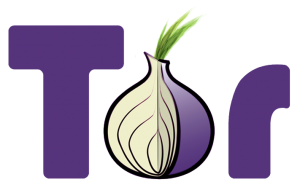Most consumers have probably never heard of the stuff I am going to discuss here, however, it’s very important for the security and health of the Internet. This week police forces made a great breakthrough against what is considered the “black market” of the Internet. Seventeen arrests were made in cooperation between US and European forces, in relation to the Silk Road 2.0. This is a secret cache of websites that runs off the Tor Network, a specialized network that is not searchable via common search engines. The websites that were shut down total around 400. Most of them dealt in illegal drugs and weapons.
The Tor Network, sometimes just called Tor, is a very dark place within our Internet world. It was originally set up by the US to assist people fighting against oppressive regimes, however, it is now overrun with illegal sites, including ones that do more than just selling illegal drugs and firearms. It includes sites for child exploitation, and it is a place where extremist groups (such as ISIS and Al-Qaida) operate, so it is constantly targeted for shutdown through all specialized cybercrime sources. To get to the Tor Network (which I am not going to explain here), you have to set up specialized proxies and VPNs to re-route your traffic and find these sites.
The Silk Road 2.0, a notoriously dark area within Tor, was set up in October after the original Silk Road was shut down and the owner arrested. (Not everyone agrees with the latest shutdown.) As a consumer, there is not much needed to protect yourself from the Silk Road. It is not a location that targets consumers. It is really a place for black market activities. You should be aware of where your family members go online. You should also be aware of similar things with your staff, if you own a business. There are many nefarious locations on the Internet that you need to be aware of so you can protect your family and/or your company.
First off, ensure that your antivirus is up to date on all machines in your home and office. If you have a special router, ensure its firmware is up to date and all passwords have been changed from their default settings. In addition, you can download tools to help review where your family or staff goes online. You can also put proxies in place to prevent people from stumbling onto bad websites.
Here are some great sites to protect your children from dangerous sites online:
http://www.onguardonline.gov/topics/protect-kids-online and
http://www.netsmartz.org/Parents.
If you need help setting up similar protections for your workplace — or if you even want to manage (or block) the time your employees spend on social media (or other adult sites) - feel free to call our experts at Everon. We are just a phone call away: 1-888-244-1748.
